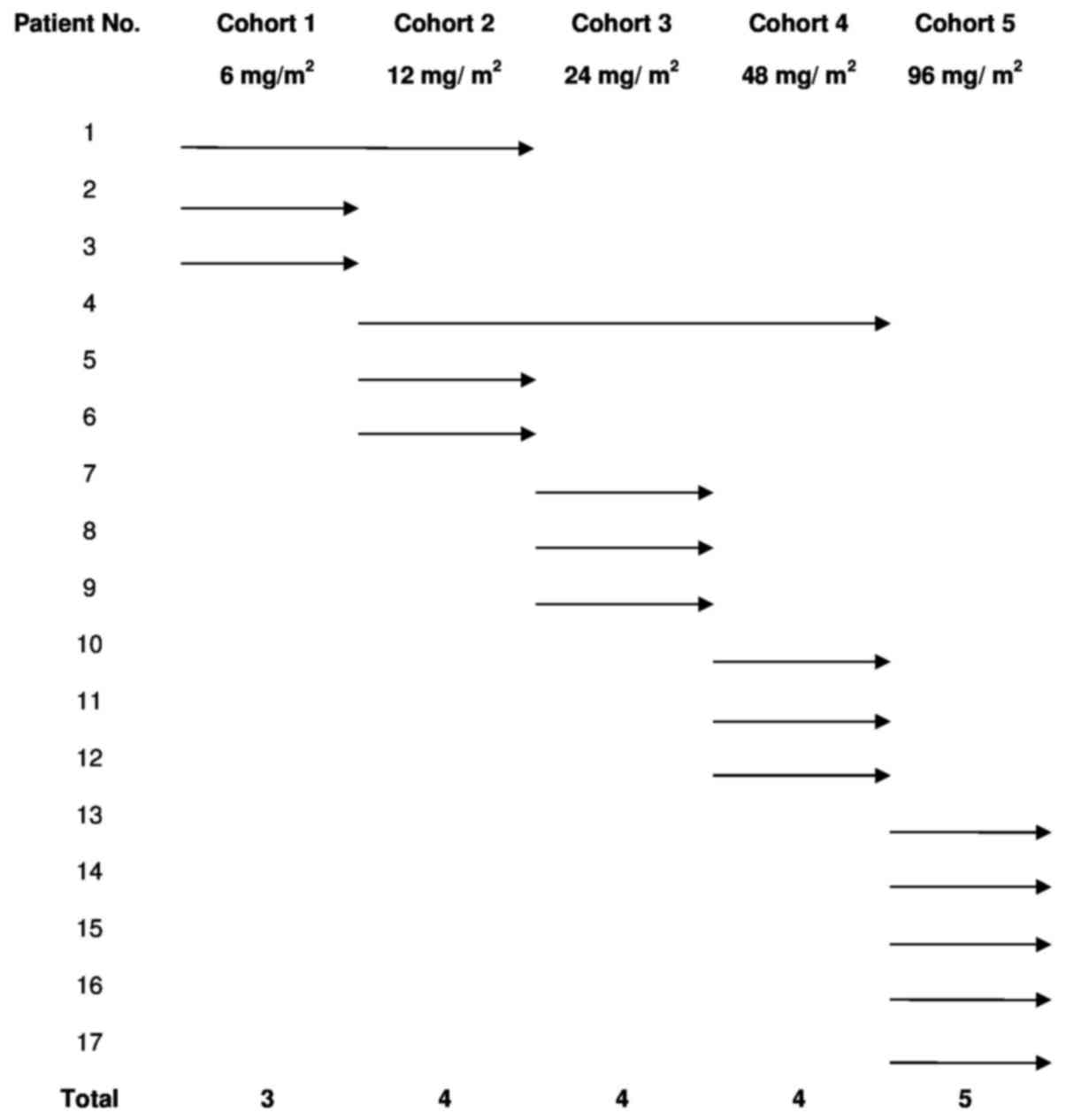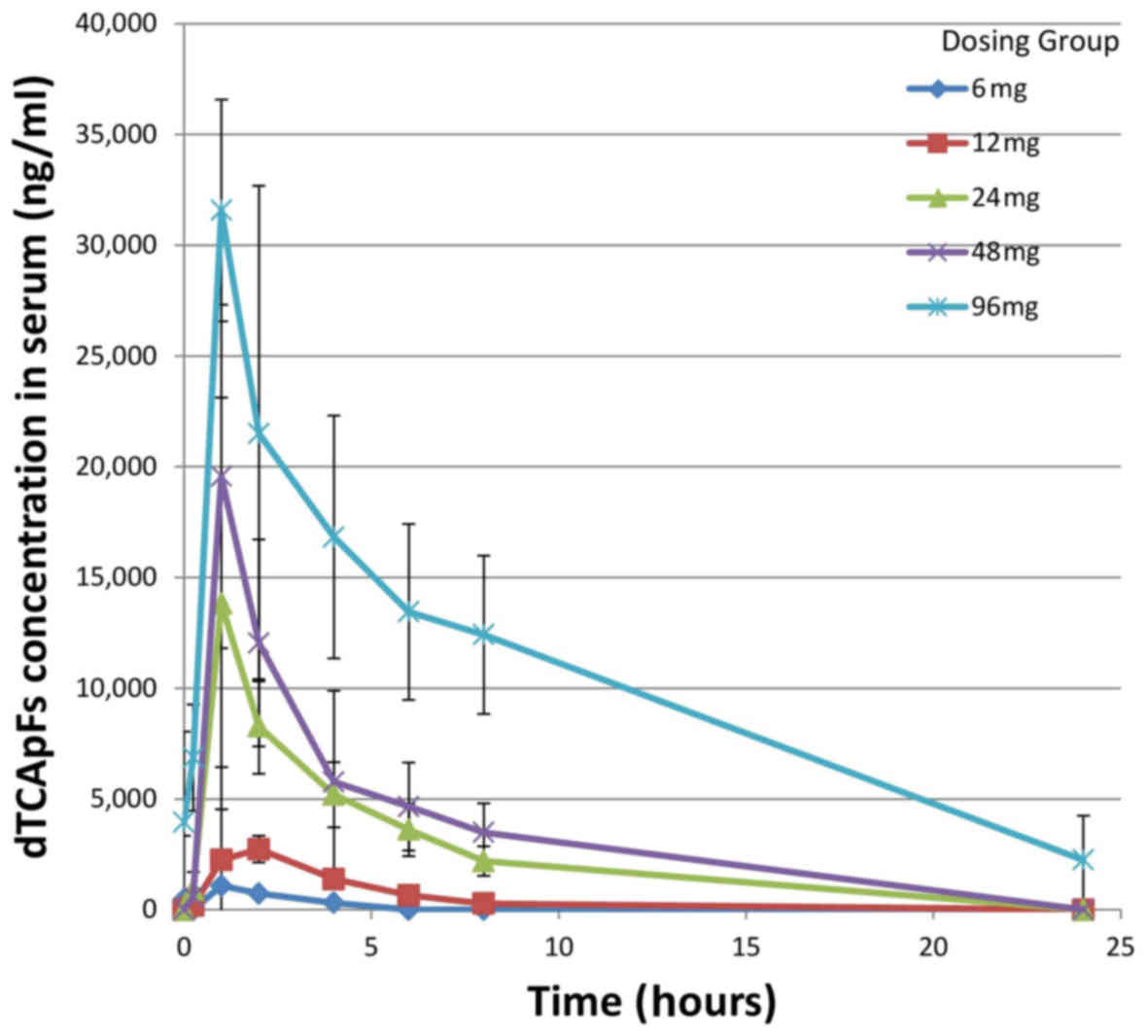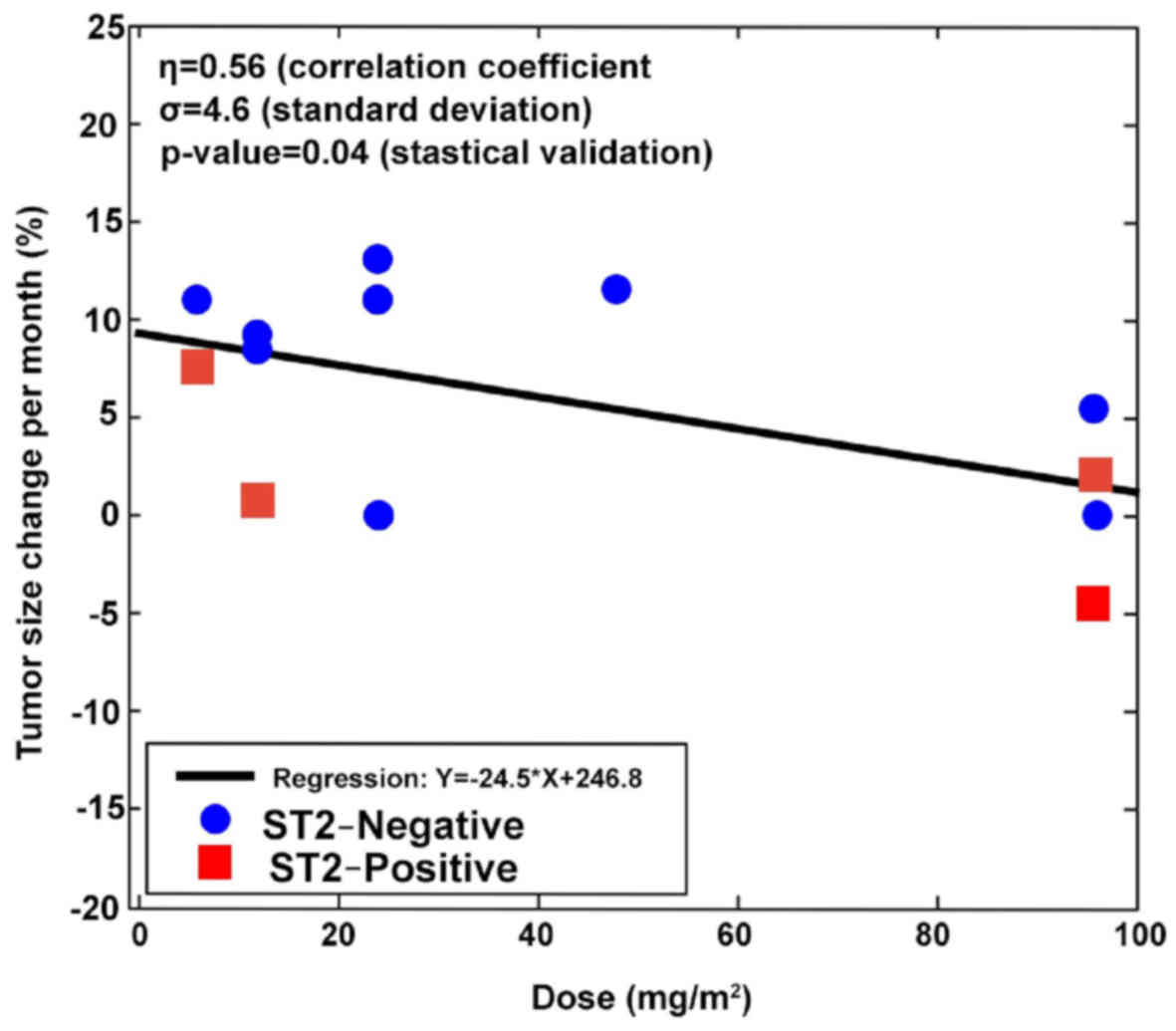|
1
|
Sandler U, Devary O, Braitbard O, Ohana J,
Kass G, Rubinstein AM, Friedman ZY and Devary Y: NEROFE-a novel
human hormone-peptide with anti-cancer activity. J Exp Ther Oncol.
8:327–339. 2010.PubMed/NCBI
|
|
2
|
Marazzi A: Algorithms, routines and S
functions for robust statistics: The FORTRAN library ROBETH with an
interface to S-PLUS. Chapman and Hall; New York City, NY: 1993
|
|
3
|
Fox J: Applied regression analysis, linear
models, and related methods. Sage Publications, Inc.; London,
England: 1997
|
|
4
|
Saccani S, Polentarutti N, Penton-Rol G,
Sims JE and Mantovani A: Divergent effects of LPS on expression of
IL-1 receptor family members in mononuclear phagocytes in vitro and
in vivo. Cytokine. 10:773–780. 1998. View Article : Google Scholar : PubMed/NCBI
|
|
5
|
Gutheil JC, Campbell TN, Pierce PR,
Watkins JD, Huse WD, Bodkin DJ and Cheresh DA: Targeted
antiangiogenic therapy for cancer using Vitaxin: A humanized
monoclonal antibody to the integrin alphavbeta3. Clin Cancer Res.
6:3056–3061. 2000.PubMed/NCBI
|
|
6
|
Lu DP, Zhou XY, Yao LT, Liu CG, Ma W, Jin
F and Wu YF: Serum soluble ST2 is associated with ER-positive
breast cancer. BMC Cancer. 14:1982014. View Article : Google Scholar : PubMed/NCBI
|
|
7
|
O'Donnell C, Mahmoud A, Keane J, Murphy C,
White D, Carey S, O'Riordain M, Bennett MW, Brint E and Houston A:
An antitumorigenic role for the IL-33 receptor, ST2L, in colon
cancer. Br J Cancer. 114:37–43. 2016. View Article : Google Scholar : PubMed/NCBI
|
|
8
|
Lambrecht BN, De Veerman M, Coyle AJ,
Gutierrez-Ramos JC, Thielemans K and Pauwels RA: Myeloid dendritic
cells induce Th2 responses to inhaled antigen, leading to
eosinophilic airway inflammation. J Clin Invest. 106:551–559. 2000.
View Article : Google Scholar : PubMed/NCBI
|
|
9
|
Walzl G, Matthews S, Kendall S,
Gutierrez-Ramos JC, Coyle AJ, Openshaw PJ and Hussell T: Inhibition
of T1/ST2 during respiratory syncytial virus infection prevents T
helper cell type 2 (Th2)- but not Th1-driven immunopathology. J Exp
Med. 193:785–792. 2001. View Article : Google Scholar : PubMed/NCBI
|
|
10
|
Coyle AJ, Lloyd C, Tian J, Nguyen T,
Erikkson C, Wang L, Ottoson P, Persson P, Delaney T, Lehar S, et
al: Crucial role of the interleukin 1 receptor family member T1/ST2
in T helper cell type 2-mediated lung mucosal immune responses. J
Exp Med. 190:895–902. 1999. View Article : Google Scholar : PubMed/NCBI
|
|
11
|
Meisel C, Bonhagen K, Löhning M, Coyle AJ,
Gutierrez-Ramos JC, Radbruch A and Kamradt T: Regulation and
function of T1/ST2 expression on CD4+ T cells: Induction of type 2
cytokine production by T1/ST2 cross-linking. J Immunol.
166:3143–3150. 2001. View Article : Google Scholar : PubMed/NCBI
|
|
12
|
Xu D, Chan WL, Leung BP, Huang FP, Wheeler
R, Piedrafita D, Robinson JH and Liew FY: Selective expression of a
stable cell surface molecule on type 2 but not type 1 helper T
cells. J Exp Med. 187:787–794. 1998. View Article : Google Scholar : PubMed/NCBI
|
|
13
|
Townsend MJ, Fallon PG, Matthews DJ, Jolin
HE and McKenzie AN: T1/ST2-deficient mice demonstrate the
importance of T1/ST2 in developing primary T helper cell type 2
responses. J Exp Med. 191:1069–1076. 2000. View Article : Google Scholar : PubMed/NCBI
|
|
14
|
Xiong Z, Thangavel R, Kempuraj D, Yang E,
Zaheer S and Zaheer A: Alzheimer's disease: Evidence for the
expression of interleukin-33 and its receptor ST2 in the brain. J
Alzheimers Dis. 40:297–308. 2014.PubMed/NCBI
|
|
15
|
Van Elssen CH, Vanderlocht J, Frings PW,
Senden-Gijsbers BL, Schnijderberg MC, van Gelder M, Meek B, Libon
C, Ferlazzo G, Germeraad WT and Bos GM: Klebsiella
pneumoniae-triggered DC recruit human NK cells in a CCR5-dependent
manner leading to increased CCL19-responsiveness and activation of
NK cells. Eur J Immunol. 40:3138–3149. 2010. View Article : Google Scholar : PubMed/NCBI
|
|
16
|
Frederiksen KS, Lundsgaard D, Freeman JA,
Hughes SD, Holm TL, Skrumsager BK, Petri A, Hansen LT, McArthur GA,
Davis ID and Skak K: IL-21 induces in vivo immune activation of NK
cells and CD8(+) T cells in patients with metastatic melanoma and
renal cell carcinoma. Cancer Immunol Immunother. 57:1439–1449.
2008. View Article : Google Scholar : PubMed/NCBI
|
|
17
|
Wuest SC, Edwan JH, Martin JF, Han S,
Perry JS, Cartagena CM, Matsuura E, Maric D, Waldmann TA and
Bielekova B: A role for interleukin-2 trans-presentation in
dendritic cell-mediated T cell activation in humans, as revealed by
daclizumab therapy. Nat Med. 17:604–609. 2011. View Article : Google Scholar : PubMed/NCBI
|
|
18
|
van de Laar L, Coffer PJ and Woltman AM:
Regulation of dendritic cell development by GM-CSF: Molecular
control and implications for immune homeostasis and therapy. Blood.
119:3383–3393. 2012. View Article : Google Scholar : PubMed/NCBI
|
|
19
|
Rank MA, Kobayashi T, Kozaki H, Bartemes
KR, Squillace DL and Kita H: IL-33-activated dendritic cells induce
an atypical TH2-type response. J Allergy Clin Immunol.
123:1047–1054. 2009. View Article : Google Scholar : PubMed/NCBI
|
|
20
|
Nabekura T, Girard JP and Lanier LL: IL-33
receptor ST2 amplifies the expansion of NK cells and enhances host
defense during mouse cytomegalovirus infection. J Immunol.
194:5948–5952. 2015. View Article : Google Scholar : PubMed/NCBI
|
|
21
|
ClinicalTrials.gov, . Description of a
trial investigating Interleukin-12 in ovarian epithelial cancer or
primary peritoneal cancer. https://clinicaltrials.gov/ct2/show/NCT00016289?term=IL12p70&rank=7January
11–2017
|
|
22
|
ClinicalTrials.gov, . Description of the
recombinant interleukin-21 in metastatic melanoma and kidney
cancer. https://clinicaltrials.gov/ct2/show/NCT00095108?term=IL-21&rank=7January
11–2017
|
|
23
|
Vasudev NS and Reynolds AR:
Anti-angiogenic therapy for cancer: Current progress, unresolved
questions and future directions. Angiogenesis. 17:471–494. 2014.
View Article : Google Scholar : PubMed/NCBI
|
|
24
|
Boehm T, Folkman J, Browder T and O'Reilly
MS: Antiangiogenic therapy of experimental cancer does not induce
acquired drug resistance. Nature. 390:404–407. 1997. View Article : Google Scholar : PubMed/NCBI
|
|
25
|
Jain RK: Antiangiogenic therapy for
cancer: Current and emerging concepts. Oncology (Williston Park).
19 4 Suppl 3:S7–S16. 2005.
|
|
26
|
Tahergorabi Z and Khazaei M: Imbalance of
angiogenesis in diabetic complications: The mechanisms. Int J Prev
Med. 3:827–838. 2012. View Article : Google Scholar : PubMed/NCBI
|
|
27
|
Han KS, Li N, Raven PA, Fazli L, Frees S,
Ettinger S, Park KC, Hong SJ, Gleave ME and So AI: Inhibition of
endoplasmic reticulum chaperone protein glucose-regulated protein
78 potentiates anti-angiogenic therapy in renal cell carcinoma
through inactivation of the PERK/eIF2α pathway. Oncotarget.
6:34818–34830. 2015.PubMed/NCBI
|


















